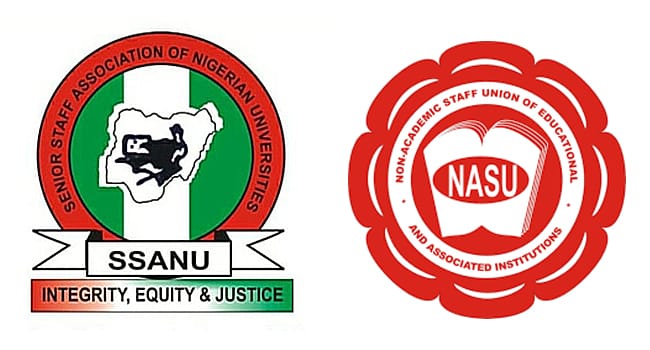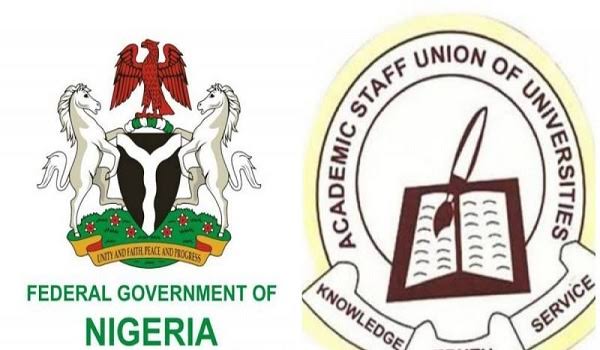The Nigerian university system may soon experience another round of disruption, as two of its most powerful non-academic unions — the Senior Staff Association of Nigerian Universities (SSANU) and the Non-Academic Staff Union of Educational and Associated Institutions (NASU) — have issued a seven-day strike notice to the Federal Government. The unions are demanding urgent action on long-standing issues ranging from unpaid allowances to stalled agreement renegotiations.
This development is coming at a time when students, parents, and stakeholders are still grappling with the after-effects of previous industrial actions in the education sector. The strike threat, therefore, raises important questions about governance, labour relations, and the future of higher education in Nigeria.
Background: Who Are SSANU and NASU?
To understand the gravity of this ultimatum, it is important to know who these unions are and why their voice carries weight.
- SSANU represents senior non-teaching staff in universities — professionals such as accountants, administrators, ICT personnel, librarians, engineers, and senior technical officers. These individuals are essential to the smooth operation of academic institutions. Without them, functions such as payroll, research support, and administrative processes would grind to a halt.
- NASU represents other categories of non-academic staff, including cleaners, clerks, drivers, technicians, and other vital support workers. They form the backbone of daily campus life, ensuring the smooth delivery of services that students and lecturers depend on.
Together, these two unions form the Joint Action Committee (JAC), which often negotiates with government on shared concerns. Their combined influence means that when they strike, the effects are immediate and far-reaching.
The Issues at Stake
The latest dispute revolves around several unresolved matters that the unions insist must be addressed immediately. Their grievances include:
1. Earned Allowances
The Federal Government recently released ₦50 billion for payment of earned allowances in universities. However, SSANU and NASU allege that the disbursement was biased and unjust, as it disproportionately favoured academic staff while neglecting non-academic staff. Even more concerning, staff in Inter-University Centres were completely excluded from the sharing formula.
For the unions, this represents an unfair practice that undermines equity and justice within the university system.
2. Outstanding Salaries and Withheld Payments
Both unions are demanding payment of withheld salaries from previous disputes. Many non-academic staff claim they have been unfairly denied their entitlements, despite fulfilling their duties. In addition, there are issues concerning delays in the implementation of approved 25% and 35% salary increments for different categories of workers.
3. Renegotiation of the 2009 FG–NASU/SSANU Agreement
Another major sticking point is the long-overdue renegotiation of the 2009 Agreement between the government and the unions. For years, SSANU and NASU have insisted that the provisions of this agreement — covering welfare, salaries, working conditions, and institutional reforms — are outdated and must be updated to reflect today’s realities.
Yet, despite repeated promises, the renegotiation process has either been stalled or neglected.
4. Failure of Government to Keep Its Word
The unions argue that they have followed due process in pressing their demands. According to them:
- A letter was issued on June 18, 2025, outlining their concerns.
- A meeting was held on July 4, 2025, involving representatives from the Ministry of Education, the National Universities Commission (NUC), and JAC of SSANU/NASU. At that meeting, a Tripartite Committee was supposed to be formed to resolve the issues.
- Despite this, the committee never materialized, and their demands were ignored.
- A reminder letter was again sent on August 18, 2025, yet the government failed to take action.
This lack of follow-through has now pushed the unions to issue their seven-day ultimatum.
What This Means for Nigerian Universities
If the government fails to act within the given timeframe, SSANU and NASU have vowed to down tools. The consequences of such a strike would be far-reaching:
- Administrative paralysis – No staff to process student admissions, results, payroll, transcripts, or certificates.
- Security risks – Campus security, often handled by non-academic staff, would be compromised.
- Disruption of campus services – Electricity, water, transportation, cleaning, and ICT support would all be affected.
- Student frustration – With many already weary from previous strikes by academic unions, another disruption could damage morale and prolong academic calendars.
- Loss of confidence in the system – Frequent strikes make Nigerian universities less competitive internationally and discourage foreign partnerships or investments in the sector.
Broader Implications
This dispute is more than just about salaries and allowances. It highlights systemic issues within Nigeria’s education and labour management systems:
- Equity in funding – Why are certain categories of staff repeatedly sidelined in financial allocations?
- Government’s credibility – Repeated failure to honour agreements erodes trust between the state and its workers.
- Economic strain – With Nigeria already grappling with financial pressures, disputes over wage increments and allowances will continue unless long-term funding reforms are implemented.
- Labour activism – If SSANU and NASU succeed in pushing the government to yield, other unions in education and beyond may also resort to frequent ultimatums.
The Way Forward
To prevent yet another crippling strike, several steps are necessary:
- Immediate engagement – The Federal Government must convene an emergency meeting with JAC of SSANU/NASU before the ultimatum expires.
- Transparent allocation of allowances – The ₦50 billion disbursement should be revisited, ensuring fairness across both academic and non-academic staff.
- Fulfilment of promises – Salary increments and withheld payments should be cleared without further delay.
- Timely renegotiation of agreements – The 2009 agreement should be revisited with urgency, updating it to reflect modern realities.
- Institutional reforms – Beyond firefighting, Nigeria needs a comprehensive policy to address recurring strike actions in its education sector.






